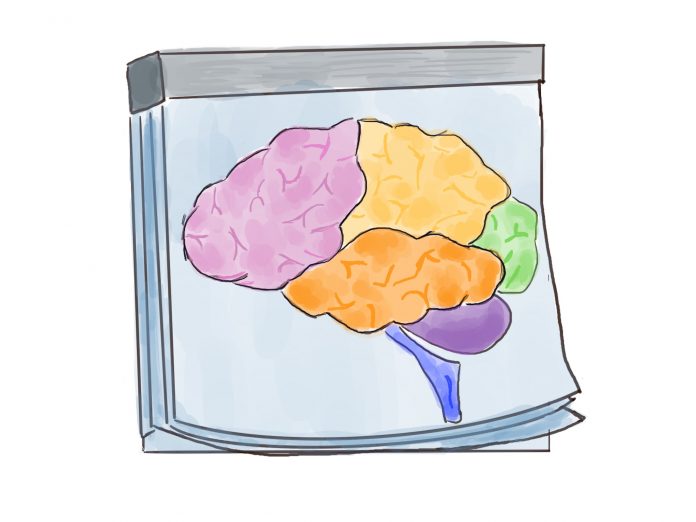Andy Fisher is a rising senior at William and Mary, majoring in math and minoring in German Studies. He works as a tutor for both of these subjects at the William and Mary TutorZone. He has a black cat named Red, who helped him edit this piece by stealing his pen (several times). Contact at him apfisher@wm.edu.
The views expressed in the article are the author’s own.
According to a recent study titled “Factors Associated With College Students’ Mental Health During the COVID-19 Pandemic” published by John Hopkins, it is estimated that 31% of college students experienced generalized anxiety disorder while 41% experienced major depressive disorder during the COVID-19 pandemic. Even before the pandemic, the frequency of mental health concerns such as Generalized Anxiety Disorder and Major Depressive Disorder was increasing among college students, the National Academies of Sciences, Engineering, and Medicine says. According to the National Academies article, in 2018, 18% of students reported experiencing symptoms of MDD, whereas only 8% reported such experiences in 2007. The rise of mental health complications among college students is an urgent issue that must be addressed by the College of William and Mary community.
How can the College address this issue? National Academies suggests a holistic approach, in which all sectors of campus are involved. In this model, college administrations should set the tone for change. The sensibility of this approach is clear; students who felt supported by their institution during the pandemic experienced lower rates of both MDD and GAD. If our administration truly wants to set the tone for change, I propose amending the current attendance policy to be specific and inclusive of excused mental health days.
The current policy details that “except for reasonable cause,” students should be present at all regularly scheduled class meetings. However, it does not define what is considered a reasonable cause to miss class. The policy also states that, per the College’s honor code, “a student’s explanation of class absence is expected to be truthful and therefore, should be sufficient in most instances.” Notably, the instances in which a student’s explanation is insufficient are not elaborated on.
This policy results in varying attendance rules among undergraduate courses, many of which are as vague as the blanket policy. This lack of clarity can make it hard to discern what professors consider to be reasonable causes for missing class and whether strained mental health falls under this category. Students in need of a mental health day are left with two options: falsely claim to have a physical illness or explain the situation honestly and risk being denied an excused absence. This situation is complicated further when professors require students to supply a doctor’s note when missing class. For these reasons, I find it imperative that the current policy be amended to more specifically and fully elaborate the reasonable causes for which a student can miss class, with one of the valid reasons for excused absence being mental health. I also believe that professors should not be allowed to require doctor’s notes for excused absences so as to make excused mental health days more accessible.
Let’s take a closer look at the symptoms of GAD and MDD to understand just how important mental health days are. According to the National Institute of Mental Health, symptoms of GAD include difficulty concentrating, restlessness, irritability, headaches, muscle aches, stomachaches, lightheadedness and difficulty breathing. Symptoms of depression include fatigue, difficulty concentrating, irritability, restlessness, headaches and digestive issues. Mental health struggles clearly impede students’ ability to come to class just as physical health struggles do, so students with MDD and GAD could greatly benefit from taking breaks from class when necessitated by their mental health.
Also significant here is the importance of attention and interest in learning. Educational psychologist William James notes the intricate relationship between attention, interest and the building of memory and associations. He regards these as essential components of the learning environment. If a student is struggling with their mental health, many of the symptoms they may experience — fatigue, difficulty concentrating or restlessness, for example — impede their attention and interest. Hence, a student in need of a mental health day is less likely to learn and retain course material, and as such, making them attend class often serves little to no purpose.
According to a Psychotherapy Networker article titled “Are Mental Health Days in Schools a Good Idea?”, Psychotherapist Lynn Lyons argues that the benefits of mental health days are inconclusive. According to the article, Lyons advocates allocating resources for a comprehensive mental health program focused on “hiring more guidance counselors, mandating training on youth mental health for school staff, education for parents, a more effective referral system to local therapists, and targeted antibullying and suicide prevention programs” as a better solution. Though I do not disagree, I believe such a program is the ultimate solution, not the first step. The first step in actively supporting students’ mental health is acknowledging that it is as important as physical health. The university wide policy that I suggest would accomplish this by treating physical and mental health absences equally.
As a helpful start, I have created an online petition, which I will present to the College’s administration. I strongly encourage you to sign the petition; with enough voices, we cannot reasonably be ignored. You can also express your support for amending the current class attendance policy by sharing and commenting on this petition or emailing your administrators.

